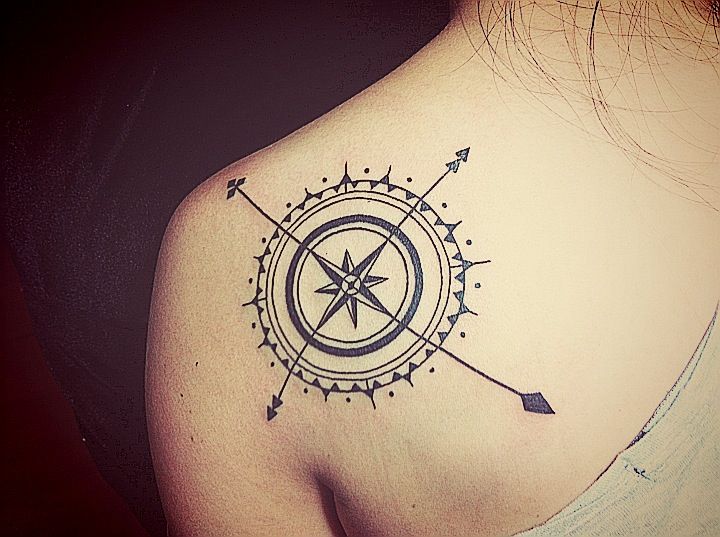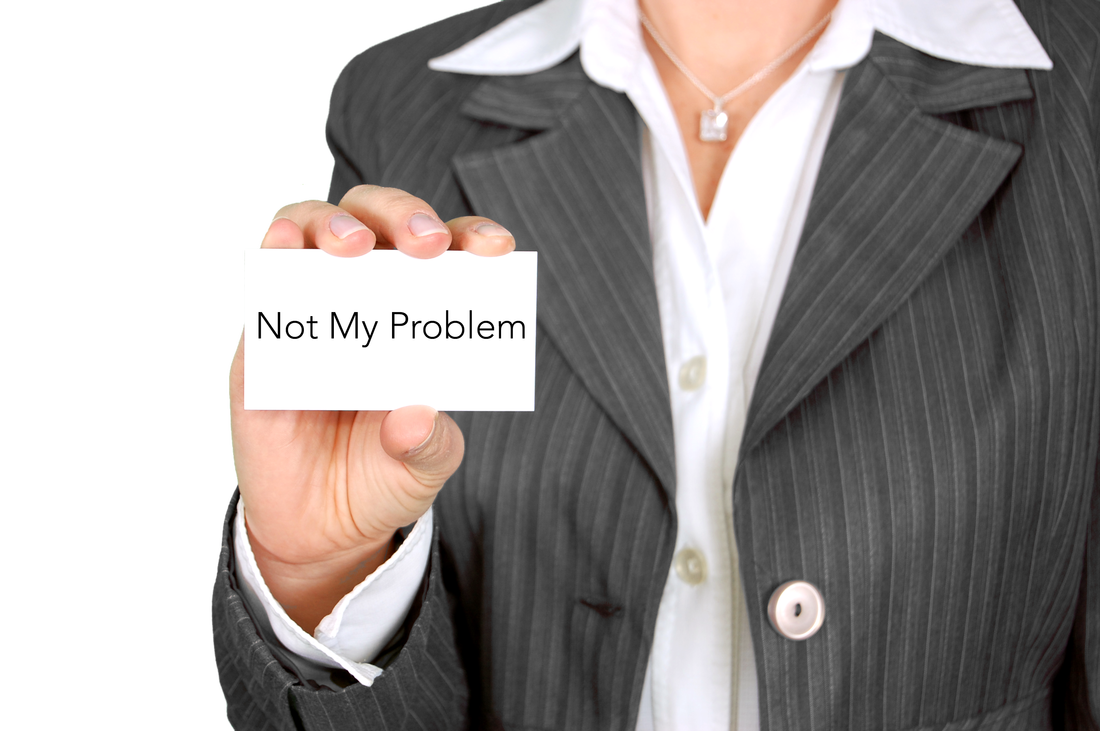|
“What guides you?” It was an interesting and earnest question, posed to me by a client. It implied all manner of things from morals to ethics and beyond. However, this question wasn’t posed to hear about my professional code of ethics (certified coaches have one, it is several pages long and a bit of a dry read), it was posed to better understand the unbreakable rules I hold myself true to.
There is no shortage of examples, like the Hippocratic oath and many other widely publicized codes of conduct; chivalry to the Ten Commandments…the “Prime Directive” on Star Trek. Every public organization has crafted a “code” for themselves that you can find on their website if you look hard enough. All of these examples provide guidance on how we should act, how we should conduct ourselves. How we should…we don’t always. Which begs the question, is there an unbreakable rule that you feel so strongly about you use it almost unknowing to guide your actions? This is less transient then a social nicety and more sweeping then making sure you don’t physically bring harm to someone. A line in the sand that encompasses your morals, values and beliefs in a simplified and clear way; just part of who you are. A constant. A client I was working with received a new job, and all the obligatory paperwork that came with it. He very nearly didn’t end up with the job because of the insistence that the paperwork was routine and didn’t need to be read through thoroughly before signing. He understood that his desire to read through each page before signing was somehow indicating to his new employer that he did not trust them. Fortunately he caught the nuance and was able to help his new employer understand that he had a guiding principle about signing paperwork and would be happy to bring it back tomorrow, allowing them to move on with things, while putting to bed any concerns about trust. How would you have dealt with pressure to “just sign” something, especially when you really needed that “something”? More than the principle itself is what it calls for in us. Having a guiding principle helps us to be alert to what is going on around us, and in so doing, attend to things in a way we may not have anticipated, bringing forward what is needed to reach deeper understanding. It is pretty easy to avoid intentionally bringing physical harm to someone. Most of us are also good at steering clear of unintentionally causing harm too (thanks to lessons from our youth). Yet, each of us can likely bring to mind a time when we felt uncomfortable about something – an early warning sign from our internal guidance system. What makes you uncomfortable? What is the discomfort telling you? Is it a part of what guides you? This process of being “awake” is important; it points to who we are, how we see ourselves and how we like to be seen by others. A form of consciousness, “What guides you” is a very important question, one worth considering. What guides us makes us who we are, whether we are aware of it or not. What guides you? “Whomsoever may torment you, harass you, confound you, or upset you, is a teacher. Not because they're wise, but because you seek to become so.” – TUT (Notes From The Universe) http://www.tut.com/Inspiration/nftu One of the most difficult things to see when you are in the midst of the hardest part of life is what part you are playing in its hardships. Things happen to us everyday we do not invite or deserve. Being thrown up on by our toddler just as we are heading off to work, made late because we are held up in traffic, experiencing disrespect from our manager. None of this may be our fault but that is cold comfort compared to the impact it has on our day. We can get very caught up in how unnecessary these things are. We may even go so far as to blame others for these unfortunate circumstances. My spouse fed the baby too quickly causing nausea. I am the only one who fills up our car with gas, which puts me in the thick of rush hour. My manager is really mean.
Who among us hasn’t had those thoughts or uttered those words (or something like them)? One of the toughest things to do when faced with a circumstance that is not of our making is to stay with it and participate in the muck of it. If we are not awake to what is happening around us, our first instinct is to react, to be defensive, to say “not me”. And it truly may not be you. You don’t control the way a growing toddler digests food, traffic flow or the way other people think. You are likely going along trying to be the best (fill in your role here…parent, community member, employee…) you can possibly be. So it is not unexpected, or even uncommon, that we distance ourselves from what is happening when things go wrong. Except that when we put ourselves outside of the problem, we cannot be part of the solution. When we cry “not it” and back away with our hands up, we are unable to participate in moving things forward constructively. When things move forward without our involvement the same circumstance is more likely to repeat itself (or become worse), compounding our frustrations and our reactions. The baby may throw up on us again, we hit gridlock constantly and our manager won’t get any better at respect. What life calls for is a level of consciousness that lets in the AND, but you need to be in the problem to see it. The baby threw up on me a few times this week and my spouse and I will take some time to look and see if baby is getting sick or if there is something we’re doing that is contributing. Traffic is getting worse and I may need to look at a new route to work, shifting my commute times or shifting my working hours. My manager is often disrespectful and unless I have a conversation with him/her it will never come to light that this is not working well for either of us. No judgement, no blame, just a calm look at what else is present that you do have control over and what influence you can exercise. This is not easy. It requires us to rise above the circumstance and to make a home for ourselves within the problem. To do that we first need to manage how we feel because this fuels our reaction, and those feelings are based on our beliefs. If we believe “this is not my fault” we are more likely to also feel that someone else should take responsibility to fix it. Except that does not address how the problem impacts us, nor how it will continue to impact us if nothing changes. Taking a closer look at yourself, picturing yourself inside the problem allows you to work within in. It gives you options and influence over how the problem is resolved or addressed. It also allows you to see how we play a part in our own misfortune, and in so doing, getting to the place where we can help to resolve it. I have been rushing to get into work this week and not letting the baby’s tummy settle enough after eating before putting her in her snowsuit. I am letting traffic make me late and not taking responsibility for how I could change my commute. I am letting another person treat me with disrespect, enabling them to keep doing it. You are not to blame for everything that happens to you, but that doesn’t mean there isn’t a problem you need to be actively involved in to solve. Becoming aware of your role in helping to source a solution is the key to empowering you to influence, and bring forward, a win-win outcome for yourself and others. We are the authors of our own misfortune, but we are also the authors of our destiny. Which do you choose to write? If an organization had a "heart beat" is this what it would look like? I work in two very different, but connected, spheres; the spheres of individuals and organizations. There is a lot of overlap, organizations are made up of people after all…but the way you address an organizational concern is not the same as the way you would address a concern coming from an individual. Yet, I often find myself wondering if the development and evolution of organizations would be better served by including an additional lens - looking at them as a “being”, rather than just an “entity”. Organizations have a past, present and future that informs them. They have both heart and spirit (which is usually what draws people to work for them or buy from them). Organizations are as vulnerable as people, and I don’t mean in the traditional business sense, I mean that actions taken externally or internally cause responses and reactions – not all of them positive or serving the expressed needs of the organization and it’s wellbeing. There are many similarities between an organization and a person when you look at it through this “organization as a being” lens.
I am not proposing we put organizations on the metaphorical “couch”, but I have seen many examples where an organization would have benefitted greatly (and financially) from engaging in some form of self reflection to better understand itself, it’s impact (external and internal) and the opportunities that otherwise were out of it’s view because this non-traditional lens was unavailable (or dismissed as irrelevant). Spreadsheets, profit and loss, market relevance, etc. – these are the things that consume organizations, and they are a reflection of their greatest concerns, but not of their spiritual development…or responsibility. As a working definition spiritual awareness is knowing, at the deepest level possible, one’s true purpose in the world, and then acting consistent with that purpose. There is deliberate attention paid to what transcends the next quarter and far beyond the next five years. Conscious organizations are those that are more in touch with their spiritual aspects, they have depth and commitment to purpose, and act consistent within it (even in a storm of internal and external pressures). Many organizations, unfortunately, are not this self-aware. They seal their fate with well-written (if often forgotten) mission, vision and value statements, demonstrating that they can “check a box” but treat it as a marketing exercise, rather than a way of being. So what would spiritual development look like for an organization? They would undergo something akin to “spiritual planning”. This would include culture and organizational health (strategic planning, employee development, change management, etc.), but look even further to encompass felt and expressed needs (moral compass, employee health/morale, client/consumer welfare, etc.) and sustainability (fiscal responsibility, succession planning, and environmental considerations to name but a few). Truth is, we see organizations bump (or crash) into these items every day in the news. Workforce strife, environmental disasters and poor fiscal management are often in our headlines, pointing to the need to forge a new way forward. Employing a lens that encourages attending to a consistent view of the spiritual aspects of an organization would also serve its traditional purposes, enabling them to reach further. It is as simple as applying this wider view to the things that are already in place within organizations today, but doing so with a new intent. Some examples that come forward from conscious organizations include an intentional and consistent approach to employee development; Managers are partners in growing their employees, in building new capacity in their workforce, in ensuring every dollar marked for development is well spent on expressed needs. Change management practices would include a specific process to collaborate on “hearts and minds” aspects of changes (as well as procedural and process items), providing greater transparency, inclusion and dialogue at all levels of an organization. Mistakes become opportunities for learning, not sources of shame or drivers for cover-ups. Succession planning is perennial, well executed and in place to ensure the legacy of the organization’s commitment to itself and the people it serves. This is a select set of examples, and by no means exhaustive. One thing all conscious organizations have is a dedication to an ever-green process allowing them to take a good, hard look at the whole organization; not just the parts that are under-performing, but the whole organization, to ensure it is remaining consistent with it’s commitments (including it’s purpose). Conscious organizations are awake to all they encompass, the good, the bad and the ugly. They are willing and able to explore their edges and invest in their own development as both an “entity” and a “being”, ensuring they are always learning and growing. And they know they will never be perfect, but they are willing to see imperfections and to make necessary changes that keep them aligned with their true purpose. This attention to details that matter (not just the ones that are profitable or serve the most recent forecast) makes these organizations “someone” people want to do business with. How does your organization view itself? For another way to look at this topic check out this article: http://www.strategy-business.com/article/00344?gko=10921 |
|
|



